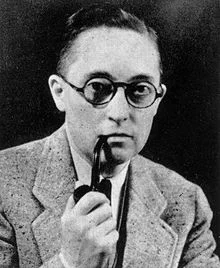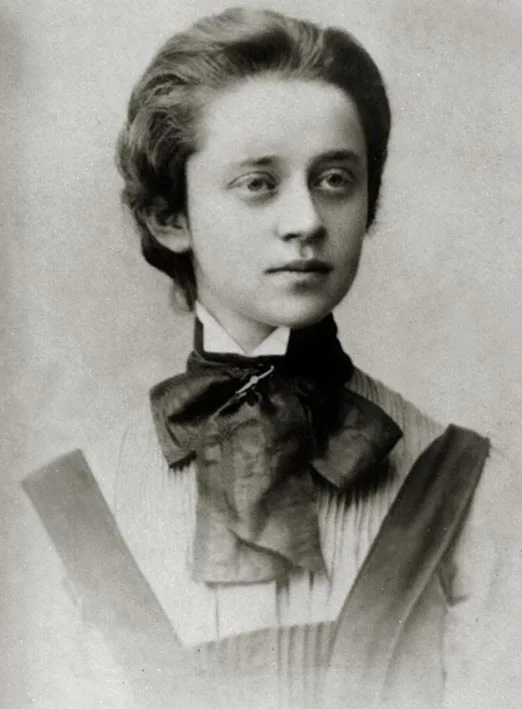“I can tell a story and I try to tell my whole feelings--the touch, the smell, and feelings. All I’m afraid of now is being like a few other guys I know who took photographs. When they die, maybe the family comes in and sees all this work they can’t do anything with, and they just shove it into the garbage. I want people to see these photographs and say ‘this is something from my time.’” Alvin Baltrop
Hatshepsut
Throughout the modern era, Hatshepsut, “the King Herself,” has served as a prism through which Egyptologists have reflected their beliefs about sex, gender, and power.
Hamish Henderson is not widely known, despite his contributions to Scottish culture. Despite being a proud bisexual, and greatly contributing to LGBT activism, this facet of his identity is largely ignored in discussions of the man himself. A folklorist, poet, and activist, Hamish Henderson (1919-2002) was one of the major forces in the Scottish Renaissance of the 20th Century, a period of time where Scottish art and political thinking flourished. His song ‘Freedom Come-All-Ye’ is probably his most well known piece of work, has been suggested as an alternative national anthem and was sung at the Scottish Commonwealth Games in 2014. Beyond this, his contributions to the promotion and preservation of Scottish Culture can still be seen today.
All throughout history, one thing has remained true: everything changes. This universal fact also applies to something so fundamental to humanity as language. From the evolution of definitions to the evolution of the words themselves, we have seen drastic changes to our languages even within the past decade. And while it is hotly debated whether the new additions to our collective vocabularies are beneficial or not, the fact is that the additions exist, whether or not old white men writing think pieces for the New York Times like it. Within the queer community, these changes are particularly evident, with new names for old identities being revealed by the day. For now, though, we focus on one letter of the LGBT community: the T. This week, we are releasing a two part series focusing on the transgender community within North America, and the different words and definitions that have existed throughout the history of the continent.
Alan Turing
There are a myriad of accounts about Alan Turing's life. You can read biographies, watch films, and browse entire websites dedicated to the man dubbed 'the father of artificial intelligence'. But many of these accounts fail on a number of fronts. Some downplay his sexuality, others ignore it outright, and only a handful recognize that Alan Turing's achievements are as much down to his early romantic experiences as they are to his intellectual prowess.
Brazilian Dictatorship and the Queer Movement
Queer culture in Brazil is as big and diverse as the country itself. The Pride Parade of São Paulo was considered the biggest in the world by the Guinness Book of World Records in 2006 and received 1 million reais from the São Paulo city hall in 2010. And after many years of struggle, it’s currently legal for same sex couple to marry and adopt children. The public health system can now cover gender confirmation surgery - even if under less than ideal circumstances. But as important as those victories are, there’s still a history of violence in this country that makes many victims to this day. In 2016, Brazil was the country with the highest number of homicides against transgender women in the world, being transgender is still considered a psychiatric issue. Making it necessary for transgender people to have a medical professional’s approval to access hormonal therapy and gender confirmation surgery legally. The discrimination against queer people has deep roots in Brazil and even during times of adversity the Brazilian LGBT community has kept fighting for their rights.
One Year Ago Today
A year ago today, forty-nine people died. It was Latin night in a gay bar in Orlando, Florida, and a man came in and opened fire, killing forty-nine people and injuring fifty-eight others.
Alan L. Hart
The study of queer history, like any study, is complicated. There is a significant amount of nuance that needs to be addressed, and because of this, it can become difficult to come to final answers. It is important to recognize that final answers are not always meant to be reached. This is particularly evident in the case of Alan L. Hart (1890-1962), the doctor and novelist who we look at this week.
Annemarie Schwarzenbach
This week we explore the life and times of a writer, a photographer, a traveler, Annemarie Schwarzenbach an all in one woman. Though her life was rather short, it still managed to be rather full. Born in 1908, she died in 1942, but between those thirty-four years, she was able to find more life and growth than others have throughout their entire lifetime. Growing up in Switzerland through the beginning and growth of World War Two we look at a divided woman in a divided world, and we will explore the nuance of this division with you all now.
Frank Kameny
In 1957, a man named Frank Kameny would go on to lose his position as an astronomer at U.S. Army’s Map Service. He, like many others, was a victim of the Lavender Scare - a menace that destroyed the lives of queer people in the United States. It resulted in dismissal from your station and destroyed hopes of finding another job in your field or any job for that matter. But Kameny, never one to sit down and take anything, protested his treatment. He took his case to the Supreme Court, but his petition got denied. This one act of injustice would start Kameny on a mission. Not to change things for himself, but to change things for his entire community. Some would say he was too radical or militant, and for his time, he most definitely was. But, it’s that kind of radical militancy that helped him change the lives of his people.
Sophia Parnok
For our last article in this year’s women’s history month celebration, we focus on a woman known throughout Russia as one of their first openly lesbian poets. Sophia Parnok was a Jewish poet born in Russia in 1885 and has grown a small reputation for being one of the first out lesbian poets in her home country. Though her work is not widespread, it is impactful. And while the government tried to curb that impact with censorship, today we will work to continue to spread that effect by sharing her story.
Yona Wallach
For the second article in our celebration of women’s history month, we look at the controversial feminist poet, Yona Wallach. Yona Wallach was born in Israel, and she had a significant impact on both the artistic and political climate of the country, partly due to never leaving the country. She used her poetry to challenge the borders of gender and sexuality, often touching on more taboo content, and because of this we will give a warning before our exploration of her work and life; we will discuss sexual content. If that is something you are not comfortable with for any reason, we will have another article coming out next week.
Bricktop
To wrap up Black History Month, we are going to do another two-part article looking at a woman who was the center of the night scene in Paris during the 20’s. We will look at a woman who was not only talented in her own right, but also fostered the talent of the people around her, and made connections with some of the most incredible rising stars of her day. We will discuss the impact of a woman who was loved by almost everyone she interacted with.
Dwayne Jones
In our third article for Black History Month, we will be moving to a more difficult topic, and discuss the life and murder of Dwayne Jones. Before we begin, we want to give a trigger warning; we will be discussing violent homophobia, transphobia, and death, so anyone who finds those topics potentially triggering- our next article will be out in a couple of days, and we'll make sure to find a happier topic. We will indicate where we explicitly discuss the details of her death with an asterisk when we start, and one when we move on from the details, but there will be discussion around the event for the entire article. Please do what is best for yourself, whatever that may be.












